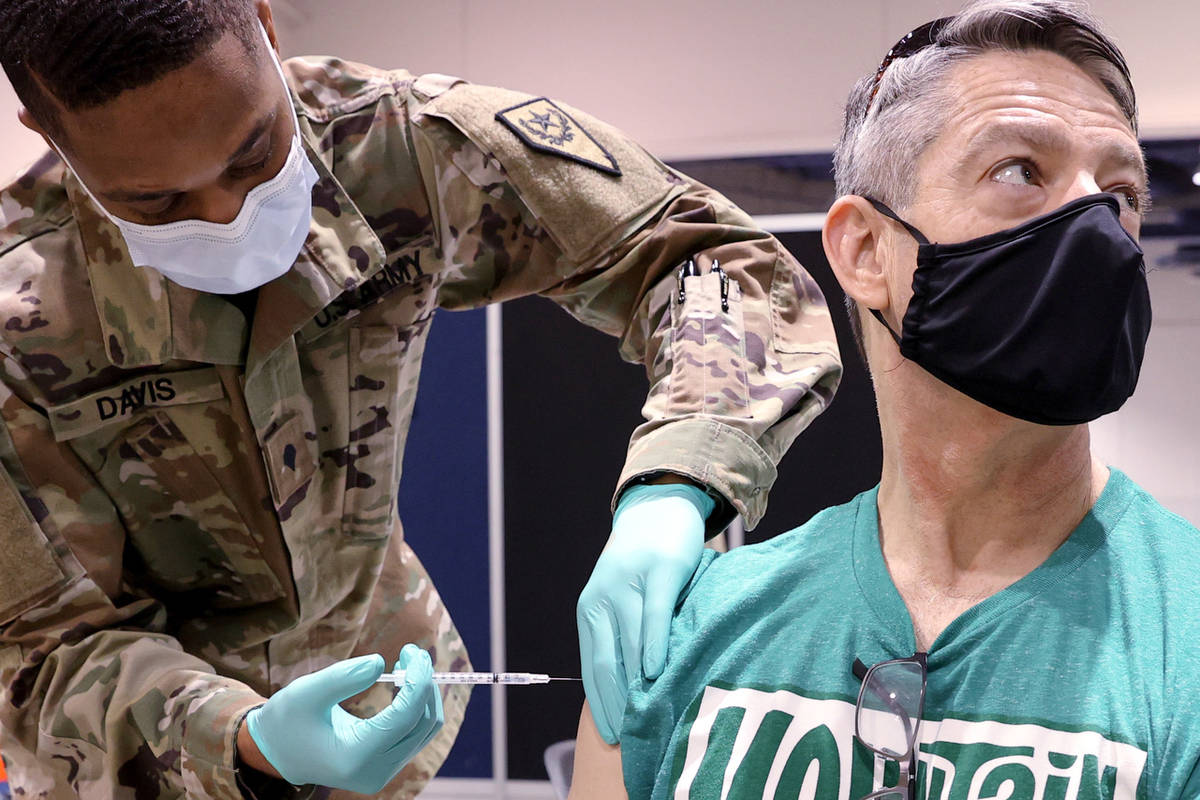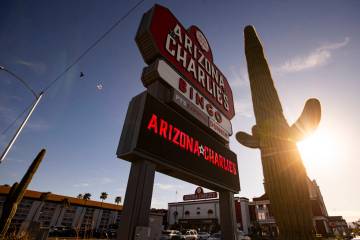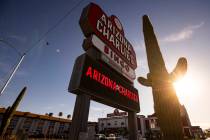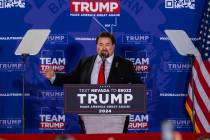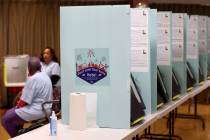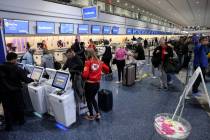Most Nevadans OK with workplaces requiring vaccines, poll shows
A majority of Nevadans believe businesses should be allowed to mandate COVID-19 vaccines among staff, according to a new poll from the Review-Journal.
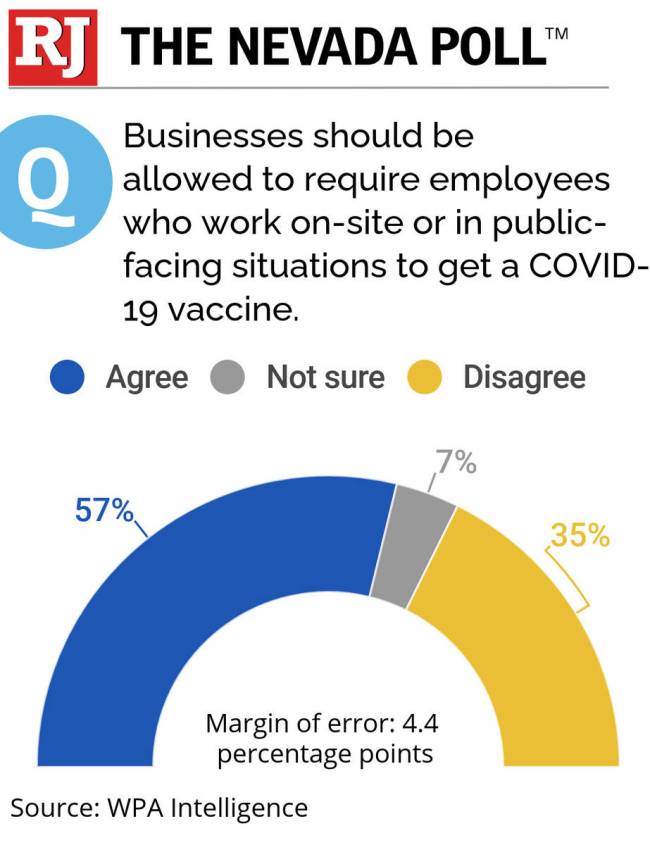
Such requirements are viewed as a way to improve workplace safety but could spur lawsuits from workers who can’t or won’t get inoculated.
“Having an employer involved in the health matters of an employee creates a very challenging position from the employer’s standpoint and can give rise to discrimination claims,” local business attorney Aviva Gordon told the Review-Journal.
Difference of opinion
The Nevada Poll surveyed 500 likely voters across the state by phone and online from Feb. 26 to March 1, with a margin of error of 4.4 percentage points.
Of those surveyed, 57 percent believe businesses should be allowed to require employees who work on-site or in public-facing situations to get a COVID-19 vaccine. Thirty-five percent disagreed.
With vaccination distribution still picking up steam — roughly 20 percent of the state’s adult population has received at least one dose as of Thursday — it has yet to be seen just how many local businesses will try to mandate shots in arms. A fair share of Nevadans are expected to opt out.
The question is: Do businesses have the right to require their staff to get inoculated? Experts say yes, but there are exceptions.
The U.S. Equal Employment Opportunity Commission indicated in December that companies can require COVID-19 vaccines among staff, but workers can request exemptions for medical or religious reasons. Experts say those who don’t comply could be asked to sign a waiver or agree to work under specific conditions to reduce risk at the workplace, instead of being outright fired.
The EEOC has granted companies permission to mandate vaccines for infections like the flu, but Gordon said COVID-19 vaccine mandates are a whole new ballgame.
“Outside the health care arena, private employers typically don’t have those (vaccination) requirements,” she said. “(Something like) grocery store workers being required to get a vaccine, there’s no precedent for that.”
Debbie Kaminer, a law professor at the City University of New York, said a vaccine mandate would help companies protect their workforce and customers, but employers would need to make sure to accommodate workers who decline vaccinations for reasons covered by federal or state laws.
“The largest challenge will mostly be the issue of religious accommodations,” she said.
It’s remains unclear how severely religious affiliations will impact COVID-19 vaccination rates in the U.S.
Some Catholics are expected to opt out of certain vaccine offerings. Leaders at the U.S. Conference of Catholic Bishops are discouraging use of the new Johnson & Johnson vaccine if given a choice because a cell line derived from an aborted fetus is used in its production.
Vaccine incentives
A February report from employment and labor law practice Littler found only 6 percent of the more than 1,800 employers surveyed planned to mandate vaccines once they became readily available or the U.S. Food and Drug Administration grants full approval.
“While that view most likely will change over time, following formal FDA approval of the vaccine and more individuals getting the vaccine, most employers currently are reluctant to mandate employee vaccinations for COVID-19,” said Barry Hartstein, who leads Littler’s COVID-19 vaccination working group.
It seems more likely that employers will opt to incentivize workers to get vaccinated, rather than enforcing strict requirements. Littler’s survey found nearly 90 percent of employers plan to provide information to employees such as the benefit of vaccination, and 37 percent said they would offer vaccine administration at their own facility.
Other possible incentives among employers included paid time off to receive the vaccine or recover from its side effects at 33 percent, or cash incentives and other monetary benefits at 11 percent.
Kaminer said this method could help certain employers avoid lawsuits. While she believes the “vast majority” of employers would win any sort of litigation surrounding vaccine mandates, many would prefer to avoid being called to court altogether.
“No one wants to be involved in litigation,” Kaminer said. And employers “don’t want to come across as heavy-handed. They don’t want to upset their employees.”
But others warn that incentives come with their own set of risks.
“Companies need to ensure that the incentives do not have a coercive effect in practice,” Charles Jellinek, who co-leads Bryan Cave Leighton Paisner’s Employment and Labor practice, said in a statement last month.
He added that employers would need to ensure that comparable incentives are available for employees who do not take the vaccine for reasons protected by federal or state law.
Contact Bailey Schulz at bschulz@reviewjournal.com. Follow @bailey_schulz on Twitter.
The Associated Press contributed to this report.
The crosstabs attached to a previous version of this story had a typographical error in the age breakdown of poll participants. The error has been corrected in the current crosstabs.



